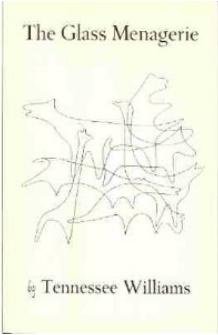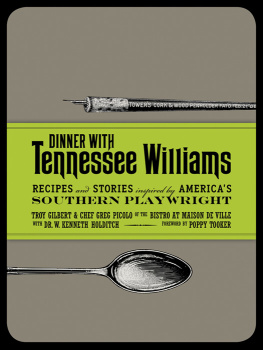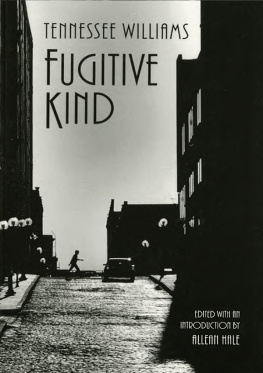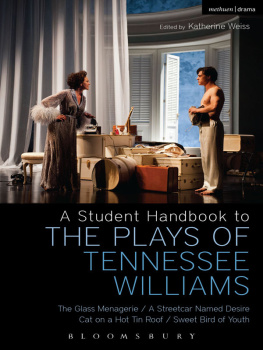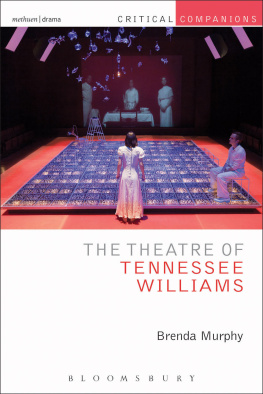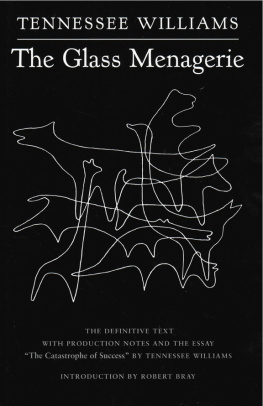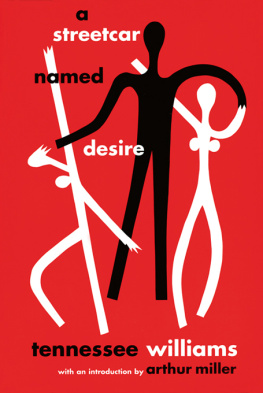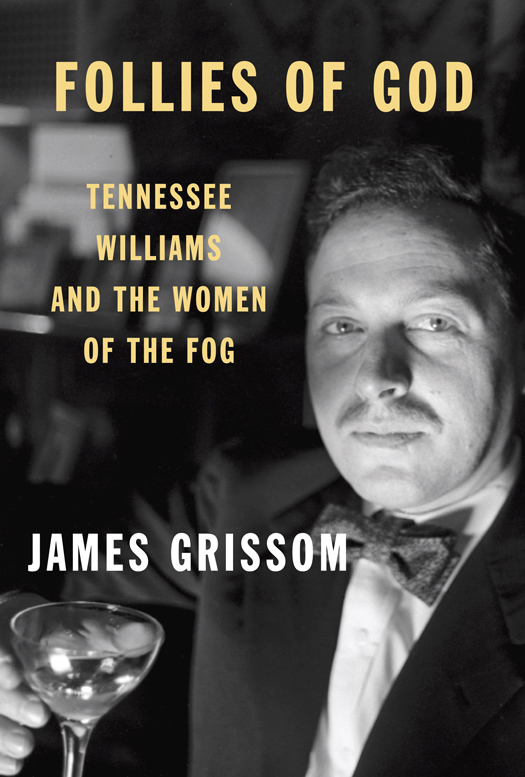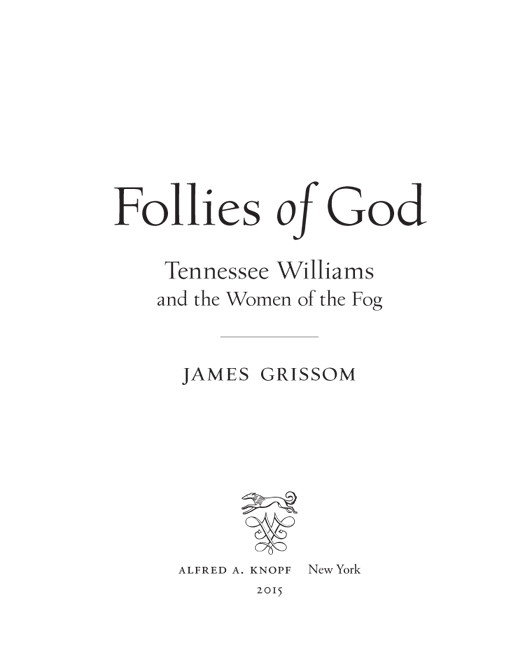James Grissom - Follies of God: Tennessee Williams and the Women of the Fog
Here you can read online James Grissom - Follies of God: Tennessee Williams and the Women of the Fog full text of the book (entire story) in english for free. Download pdf and epub, get meaning, cover and reviews about this ebook. year: 2015, publisher: Knopf, genre: Art. Description of the work, (preface) as well as reviews are available. Best literature library LitArk.com created for fans of good reading and offers a wide selection of genres:
Romance novel
Science fiction
Adventure
Detective
Science
History
Home and family
Prose
Art
Politics
Computer
Non-fiction
Religion
Business
Children
Humor
Choose a favorite category and find really read worthwhile books. Enjoy immersion in the world of imagination, feel the emotions of the characters or learn something new for yourself, make an fascinating discovery.

- Book:Follies of God: Tennessee Williams and the Women of the Fog
- Author:
- Publisher:Knopf
- Genre:
- Year:2015
- Rating:5 / 5
- Favourites:Add to favourites
- Your mark:
Follies of God: Tennessee Williams and the Women of the Fog: summary, description and annotation
We offer to read an annotation, description, summary or preface (depends on what the author of the book "Follies of God: Tennessee Williams and the Women of the Fog" wrote himself). If you haven't found the necessary information about the book — write in the comments, we will try to find it.
An extraordinary book; one that almost magically makes clear how Tennessee Williams wrote; how he came to his visions of Amanda Wingfield, his Blanche DuBois, Stella Kowalski, Alma Winemiller, Lady Torrance, and the other characters of his plays that transformed the American theater of the mid-twentieth century; a book that does, from the inside, the almost impossiblerevealing the heart and soul of artistic inspiration and the unwitting collaboration between playwright and actress, playwright and director.
At a moment in the life of Tennessee Williams when he felt he had been relegated to a lower artery of the theatrical heart, when critics were proclaiming that his work had been overrated, he summoned to New Orleans a hopeful twenty-year-old writer, James Grissom, who had written an unsolicited letter to the great playwright asking for advice. After a long, intense conversation, Williams sent Grissom on a journey on the playwrights behalf to find out if he, Tennessee Williams, or his work, had mattered to those who had so deeply mattered to him, those who had led him to what he called the blank page, the pale judgment.
Among the more than seventy giants of American theater and film Grissom sought out, chief among them the women who came to Williams out of the fog: Lillian Gish, tiny and alabaster white, with enormous, lovely, empty eyes (When I first imagined a woman at the center of my fantasia, I . . . saw the pure and buoyant face of Lillian Gish. . . . [She] was the escort who brought me to Blanche) . . . Maureen Stapleton, his Serafina of The Rose Tattoo, a shy, fat little girl from Troy, New York, who grew up with abandoned women and sad hopes and whose job it was to cheer everyone up, goad them into going to the movies, urge them to bake a cake and have a party. (Tennessee and I truly loved each other, said Stapleton, we were bound by our love of the theater and movies and movie stars and comedy. And we were bound to each other particularly by our mothers: the way they raised us; the things they could never say . . . The dreaming nature, most of all) . . . Jessica Tandy (The moment I read [Portrait of a Madonna], said Tandy, my life began. I was, for the first time . . . unafraid to be ruthless in order to get something I wanted) . . . Kim Stanley . . . Bette Davis . . . Katharine Hepburn . . . Jo Van Fleet . . . Rosemary Harris . . . Eva Le Gallienne (She was a stone against which I could rub my talent and feel that it became sharper) . . . Julie Harris . . . Geraldine Page (A titanic talent) . . . And the men who mattered and helped with his creations, including Elia Kazan, Jos Quintero, Marlon Brando, John Gielgud . . .
James Grissoms Follies of God is a revelation, a book that moves and inspires and uncannily catches that illusive dreaming nature.
James Grissom: author's other books
Who wrote Follies of God: Tennessee Williams and the Women of the Fog? Find out the surname, the name of the author of the book and a list of all author's works by series.

